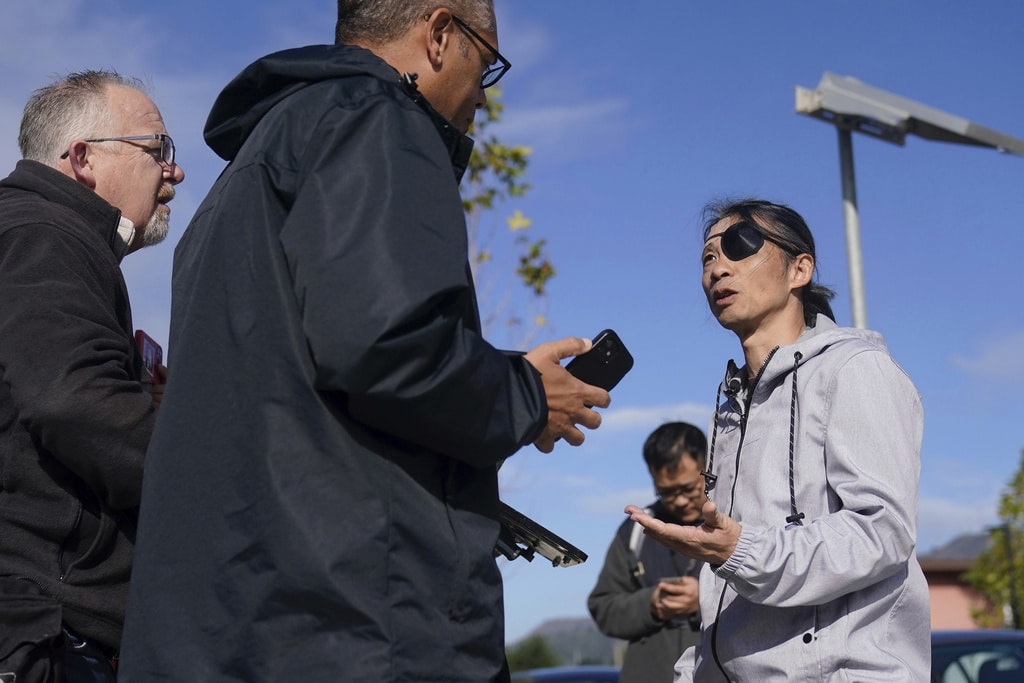The First Amendment to the U.S. Constitution guarantees a number of important rights, which many Americans regard as inherent in the ideas of human dignity and equality. These freedoms are much wider than those in some other countries whose rulers subordinate personal freedoms of religion, speech, press, assembly and petition to national unity or ideology.
U.S. has limited ability to protect rights abroad
For example, women in Afghanistan and Iran might be punished for not wearing a hijab. Afghanistan recently adopted a rule prohibiting women from singing in public. Many nations criminalize speaking or demonstrating against governmental official and/or policies.
Although the U.S. can set an example and hope to encourage the enactment of more liberal laws abroad, it has no jurisdiction to interfere within those nations themselves. It may, however, face attempts by foreign nations from whom its subjects have emigrated to interfere with the exercise of such rights within the United States.
Cases of China, others encouraging violence within the U.S.
In 2024, The Washington Post published a report that documented how individuals from the People’s Republic of China living within the U.S. had engaged in harassment and violence against those who were protesting policies by the Chinese Communist Party (CCP), including the reunification with Taiwan, during a visit to San Francisco by its leader Xi Jinpin in November 2023. They tore down banners and replaced them with Chinese flags and assaulted opponents with flag poles, gloves with metal knuckles and other objects.
In some cases provocateurs wore masks to hide their identities. The Post article also documented how the Chinese Consulate paid for their supporters’ meals, bus transportation and motels and hired private security guards for them. A number of Chinese who had diplomatic immunity also participated in demonstrations that became violent.
The Post reported that some analysts viewed such actions as “an extension of Chinese state policy to repress groups such as Tibetans, Uyghurs and Hong Kongers, and silence them, even outside China.”
The article cited a statement by FBI Director Christopher A. Wray accusing the Chinese Communist Party of “encroaching on our national sovereignty by exporting their repression and human rights abuses onto our shores.”
Repression by China on another’s country’s soil not limited to the U.S.
Testimony by Annie Wilcox Boyajian, the vice president for policy and advocacy at Freedom House, indicates that her organization had “collected information on 854 direct, physical incidents (assassination, kidnapping, assault, detention, or deportation) of transnational repression around the world” from 2014 through 2022.
Although China accounted for approximately 30 of such cases, other leading offenders included “Turkey, Tajikistan, Egypt, Russia, Turkmenistan, Uzbekistan, Iran, Belarus and Rwanda.”
Boyajian expressed particular concern over “the extraterritorial repression of reporters.” In one of the most shocking examples, Saudi Arabian officials murdered Jamal Khashoggi, a U.S.-based journalist during his visit to the Turkish consulate in Istanbul.
Such actions are not altogether new. In 1949, Soviet agents assassinated Leon Trotsky in Mexico, and, in 1976, Chilean agents assassinated Orlando Letellier, Chile’s former ambassador to the U.S. (Anstis, Al-Jizawi, and Delbert 2023, 645). Propaganda from the Communist Party in the U.S. long advocated policies favored by the Soviet Union as some organized to overthrow the U.S. government.
Immigrants to the U.S. have First Amendment rights
Although immigrants from other nations have the right to exercise First Amendment freedoms, the same as native-born citizens, these come with reasonable time, place and manner restrictions. The rights of peaceable assembly and expression do not include the right to use physical force or intimidation, although it is often difficult to identify suspects and ascertain blame in situations where violence occurs.
Foreign governments have used internet, social media to spread mistrust in U.S.
Moreover, as internet sources, particularly social media, have become increasingly internationalized, there is the threat that foreign governments and other bad actors can spread disinformation and distrust through such networks, which could affect U.S. elections. Although federal laws prohibit foreign nationals and governments from spending money on U.S. elections, these laws do not appear to have been particularly effective, and the nonpartisan Campaign Legal Center has argued that they should be tightened and expanded.
Such networks could also be used to spy on dissidents who are living abroad or even to gather information about native-born citizens. This is a central motivation behind the U.S. government’s efforts to rein in TikTok and have it cut all ties to the Chinese government.
John R. Vile is a political science professor and dean of the Honors College at Middle Tennessee State University.

